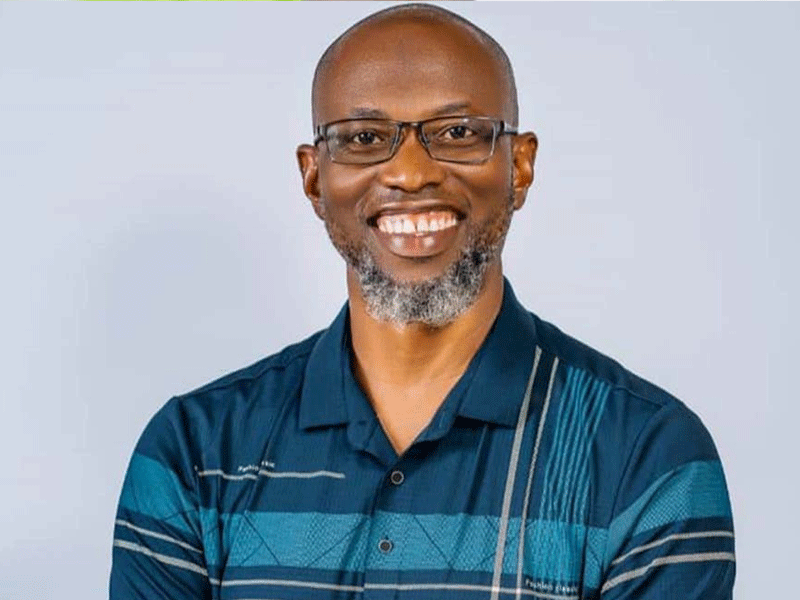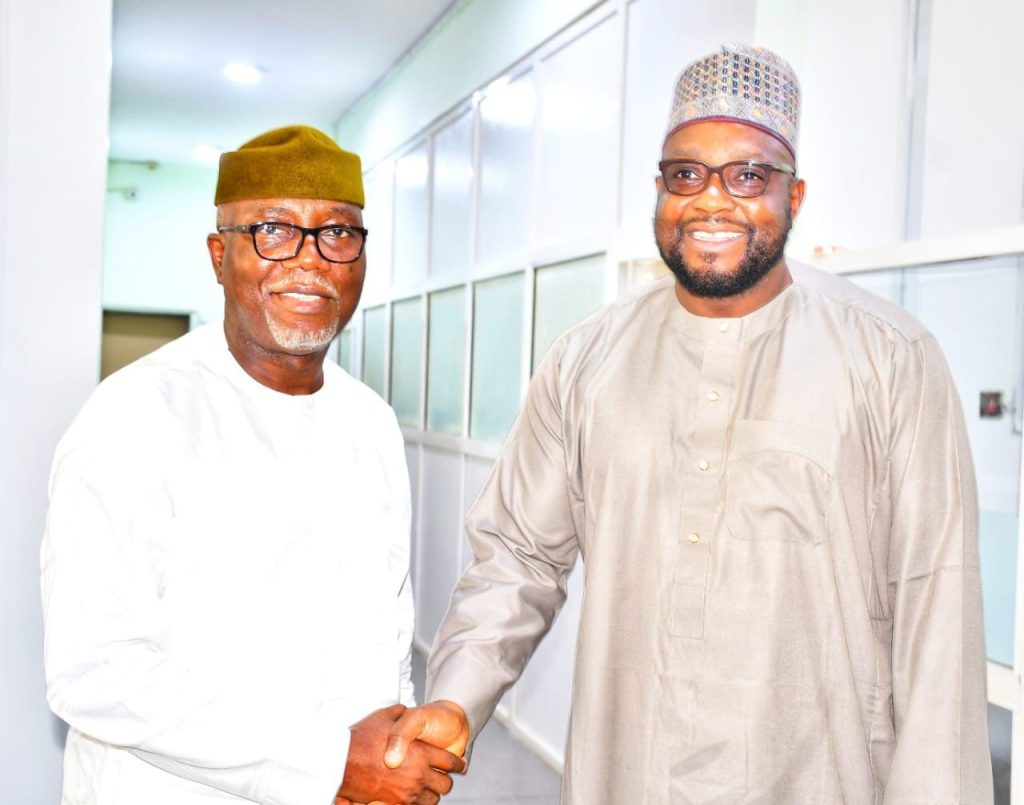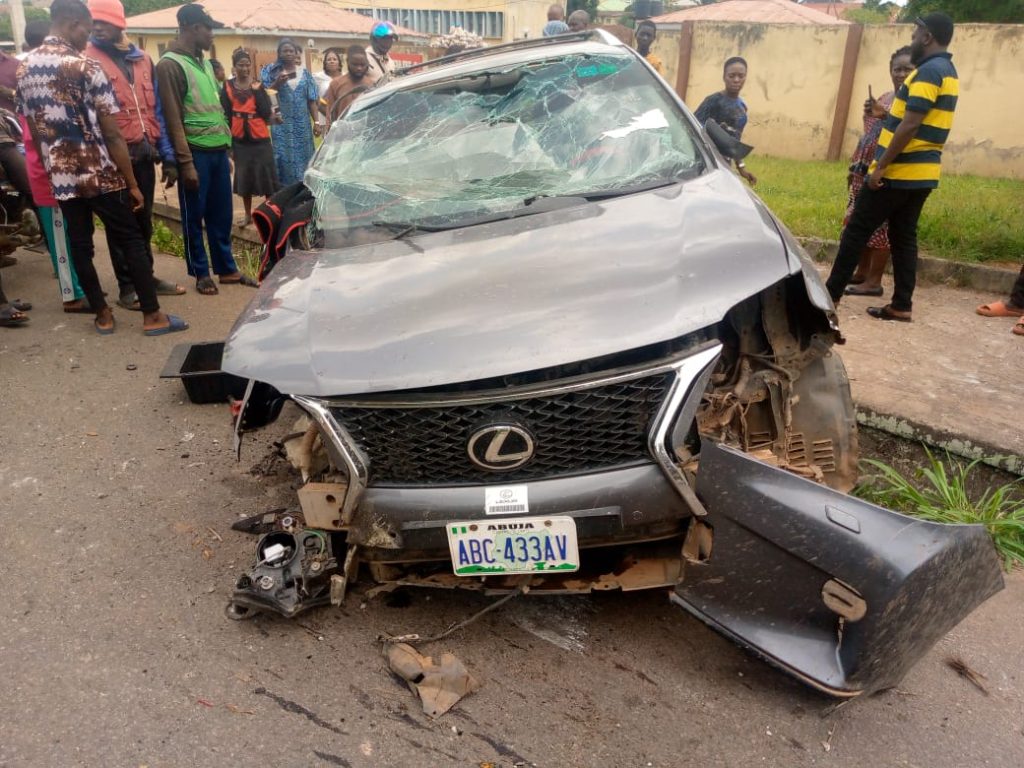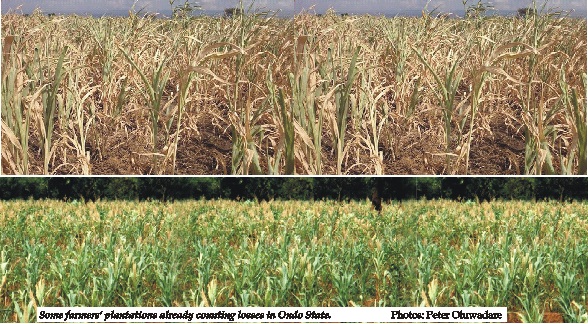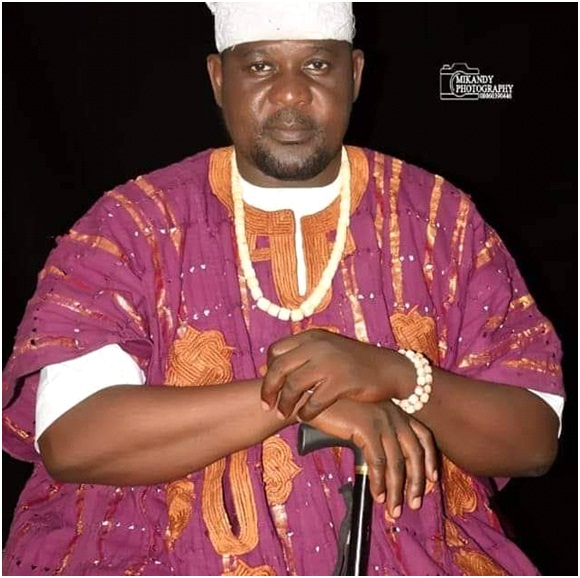Parliamentary ’ll save funds but can breed autocracy – Prof Agagu
As Nigeria approaches the general elections in less than two months, there appears to be apprehension even as many continue to agitate for the restructuring of the country. In this interview with Line Editors, Prof Akinsola Agagu, a Professor of Political Science bares his mind on this development and on other topical issues of interest.
Excerpts:
2019 is around the corner and a lot of people are sounding like Nigeria is going to crumble with problems. Looking at the signs, are they ominous or auspicious?
I think a time like this may be apprehensive, and democracy is just growing in Nigeria, it had been truncated about three times, we have now entered the era we call democracy for the past 19 years we have been in it but we are making progress. Even up till few years ago, the use of social media was limited, but now virtually everybody is participating, when news filter, before anything happens, people are aware, everybody is involved, and that is why it appears there is tension.
But the tension we witnessed in 2015, and the prediction we had even from the World Bank which did not come to be, showed us that this democracy will still endure, but what matters is that we Nigerians when we desire democracy, we are the one who will make it survive. But we must go beyond the level of having democracy to the level of good governance, and I think that is what will benefit us.
So far, what will be your appraisal of civilian administrations in the country? Have they given us enough confidence that this democracy will survive?
Well, from my own assessment and understanding, I think democracy will survive if we are able to caution ourselves. It is a desire and once we have a desire, we would achieve it, and I think democratic institutions are also developing, once the institutions are developing and are getting resilience, then democracy will surely survive. When we talk of civilians, or let’s talk of the citizens at large, once civilians desire democracy, it is always about a will-power and once we don’t invite the military. The third force, I think democracy will survive and one reason that will make it survive is that, all these politicians, they share the same ideology and you can see the will when people move from one party to another , within a jiffy there are people (even notable) who have changed to five different political parties and the followers are also following them. One of the major issues that usually encourage politicians to call for a third force is when there is no free and fair election, when people become frustrated.
Now what will be your suggestion to Nigerians on how to ensure that we have free and fair elections so as to reinforce the interest of the people on democracy?
Yoruba have an adage, “Ere lanfomo ayo se” politics must get to that level that if you loose, four years is a very short period, you prepare yourself, your strategy, your manifesto, your programmes. So, once we can reduce election manipulation, definitely politics will be more interesting and will be more relieving, it will no longer be do-or-die politics.
That notwithstanding sir, when you look at the incentives involved, the huge amount of money people benefit as we learned from Senator Shehu Sanni that an average Senator collects about N13million, is it possible to convince people not to be desperate to want to have access to power thereby resulting to unholy means?
Thank you for that. I think the cost of running government is extremely high, and something must be done about that. The difficulty is how do we go about that because with those people who are benefiting from it now, will they be willing to reduce that? For instance those in the national assembly, they are the one who will actually determine that, so what do we do? That is where everybody must be involved, civil societies, the communities, the ethnic nationalities must be involved. We must all agree that it is not good , that it is not the best for the country where a Senator earns maybe about a billion. The senators representing this state now about three of them and when they resumed, they got about N250million each, virtually a billion which can be used to improve the lot of the people, so that is a very serious thing. I thought that is a kind of thing a confab will address, but we must also ensure we have the fact; what is the situation? How much does a minister earn. Though there are some people in the presidency who are not seen, who are not even heard but have access to large sum of money. All these must be cleared, although the senators, the members of the House of Representatives are at the fore, we see them and hear them, but what of those invisible people? How much do they earn? Do we consider the constituency project as part of what they earn? If that is correct, the constituency project, is it actually their own money? Are they the ones who chose the contractors? Are they the ones who execute it? That is the first dimension. The second dimension is that what is the pressure of the electorate on these people? The arrangement is such that the masses will over-depend on these people; they want to pay the school fees of their children, they want to settle medical bills of their wards or their parents or spouses. The cost of governance and government’s activities are increasing now. But perhaps, if we say we want to make it full time we will still have to review it. Must they earn more than what a Chief Medical Doctor earns? Must they earn what a Permanent Secretary earns? Supposing we make it part time, what will the country loose? To make it attractive, for instance there is nothing bad if people like Prof Wole Soyinka becomes the chairman of his own local government, after all, Ja Shurash after he became President of France, became the chairman of his local government. We have some elderly people who had made their marks, even in this state, who are committed to service to people. You know if it is not something attractive, people who don’t have the capability will even venture into it, those people will still make their contribution. I knew sometimes ago, there was one retired principal in Ekiti state , he was in his farm when they wanted to appoint a chairman of his local government, they had to go to his farm to locate him because of his outstanding performance in service. He didn’t have to spend much. If a Senator earns that much, what is the cost of his campaign? If a governor earns that much, what is the cost of his campaign? All these must be streamlined. The people must first of all cure themselves, I mean the citizens, and it must be a collective decision if as a chairman, your constituency finds out you project their interest and you will be able to help them, they can come and meet you. This day, it is the people who go and meet the community, and when they go, they go with a lot of money. So people’s perception has changed. People must have the right perception. This we must do to ensure that all those who occupy such positions must not earn too much, that means the input they make into the elections must not be too much, and that must begin from you and I. That is where the media must play more veritable roles.
I think it should be a top to bottom approach. If the people are aware that senators, governors are earning not much, the over-dependence on them will reduce drastically?
You are correct. But if you say top-down approach, that is where the media has to come in. The media has a role of educating the people. People must be well-educated , people won’t believe until they are educated, and it is not what you do once and for all, you must be persistent, go to the communities, have audience and let this thing be relayed, we can have a common forum , there is a misconception of the dividends of democracy, people believe that before I work for you, you must give me something. Whereas you don’t have to give me something if you tar the road that leads to my house and if my children have access to good schools with qualified teachers. People must know what we really call dividends of democracy, that education is very important.
The issue of the remuneration, will you see it as a failure on the part of the Fiscal Commission because remuneration is more or less legislation in Nigeria and will it not be easier if the commission or at the national assembly, things are fixed it?
You see there is what we called unanticipated consequences of decision making, initially when the decision was made to pay them good wages or allowances, it was meant to prevent corruption, so it was well-intended that if they are well paid, then they would not be involved in corruption. The issue of corruption is a serious thing now, large chunk of our money have been diverted.
The second aspect of it is that the legislature themselves also have the power to legislate or to allocate funds to themselves, some of the times they also abuse their powers, even the allowances , when they make their oversight functions, some are too exorbitant . Once there is spirit of patriotism, those in the position of authority will not mismanage, will not abuse their power and will not allocate funds that are not meant for that purpose. So, if there is a need to actually review the remuneration of those in the national assembly, and even the executives, the thing must be brought to the table, so that it won’t be one-sided, it must be general so that we can have a review. Let it be clear, if you cannot take this you don’t need to aspire. Once the thing is opened, if you are a senator if what you earn per month is N500,000 and the allowances will not be more than N200-N300, 000, it is clear, if you are aware of that, you don’t need to go there , you don’t need to over-invest; some of these people what they invest there is too much and once they get there they want to recoup what they have invested, all these must be made clear before they aspired. When somebody buys nomination form for about N12million, he knows he is going for investment and that is just to buy form; in the primaries a lot of money will have to change hands for the delegates , so the person is already investing , when he gets there, will he not make profit on his investment? So, that is the dilemma of Nigeria’s politics today and that is why politics has been turned to serious investment.
If you are aware of it, you don’t need to go there. You don’t need to over invest. All those people, what they invest there is too much and when they get there they want to recoup what they have invested.
Somebody may buy a nomination form for about N12 million, then in the primaries, a lot of funds have to change hands for the delegates.
So the person is already investing, so when he gets there would he not make profit on his investment?
That is the dilemma of Nigerian politics today, and that is why politics have been turned into a serious investment.
Whereas people can benefit from politics from various dimensions. If I am a senator if I attract good things into my community, that should be part of my benefits which I should see as profit, isn’t it?
But profit now is measured in monetary terms not in terms of the good things you attract to your people, not in terms of quality of debate, quality of politics.
So those are the problems within the Nigerian setting, and that goes into another issue, the nature of the Nigerian state.
Let’s talk about the parliamentary system of government. Recently, there was a bill sponsored by some House of Reps members, trying to return Nigeria to the parliamentary system. Is it a solution to the nation’s problems?
To my mind it is not the solution per say. The parliamentary system is not built in a vacuum.
What is the origin of parliamentary system in Nigeria? It was because Britain that colonised Nigeria bequeathed it to us.
It was one of the basic philosophies of Britain, that all its colonies must embrace parliamentary system. Indeed, Britain believe that it is the most civilised means of democratic sustenance. They made it a condition even for Canada.
It was made clear that the colonies, if they must have self rule, they must embrace the parliamentary system.
However, people are clamouring for return to parliamentary system because of the success registered in the first republic, but it was not the parliamentary system that was the basis, it was true federalism.
I think what all the ethnic nationalities, all those legislators, who are trying to reinvent the parliamentary system should do is to emphasise true federalism and restructuring.
For instance, if the federal government does not own most of our resources, if Ondo State can develop at its own pace, people would not care so much about what happens at the centre.
The revenue location formula, the means of allocating resources, all those things if they are settled, there would not be much problem.
So the return to the parliamentary system may not be the issue, except along with that proposal there is big emphasis on restructuring and true federalism.
Parliamentary system has its advantages, but it also has its own disadvantages. One advantage is that it may save funds, isn’t it? If ministers are chosen among the members of parliament, there is a tendency that it would reduce cost.
But the doctrine of separation of powers meant well. If power is so fused it can lead to autocracy. No matter the shortcoming of the national assembly today, you still find out that there are some positions it takes that helps the country.
If the parliament and the executive are fused and once they take a position it becomes binding, it may not be in the best interest of the country. We may be saving money but the cost of autocracy, we may not be able to cost it.
For instance, if we save x naira by fusing government, the loss, which may be y naira may be higher than x naira; so that is the problem.
The context under which we practised the parliamentary system in the first republic is different now. Those days the leaders were patriotic.
It was possible for Shief Obafemi Awolowo to go about building schools, to implement free education in primary schools then, but there is this acquisition tendency which is everywhere now. It was not the case then.
People were determined to leave their mark on the sand of time. There was healthy rivalry when Awolowo began those things that in the west, in the east they thought that the west was overtaking them, they also had to introduce free education.
There were people then who thought there was the need to transform the country and they wanted to show the colonialists that Africans could perform, that the Africans were not morons like the Europeans painted them.
And they wanted to perform to ensure that independence would bring about not only political independence but also economic independence and development. That was the context then.
Even though the Nigerian elite could not actually separate ourselves from the colonialists, but at the same time, the context was different and the context like I earlier mentioned was the nature of the constitution. We were running a very good federal system not the pseudo federal system we are running now.
(cuts in) why is it that the parliamentary system and presidential system work in other climes and they do not work where Africans hold sway, is there anything wrong with the black man?
Nothing is wrong with the black man per say. But some of the times our leaders are opportunists.
I was referring to Chief Obafemi Awolowo. He was the first to build stadium in Africa, television, he introduced free education, built the Cocoa House, he establishment a university.
Awolowo, Tafawa Balewa, Sardauna, they were black men; Azikwe was a black man. So, the issue is not about the black man per say but about individuals, opportunists, who found themselves in government, and that is what we call the ecology of politics.
And that has to do with our thinking. A white man, a prime minister can drive his car. We have seen even prime ministers who board train like the common people.
And if he has to stand, if he is not of age, he will stand. But there is that aura which we create around ourselves when we acquire power. That is why I talked about opportunists. If you are in power, if your goal is to serve the people, whether you are a black man or a white man you will serve well.
Mandela, Nyerere, Kwame Nkrumah, would you say they were not black men?
So there are black men who have lived well and who have not actually exploited their people. There are black men like that. But if we have opportunists, they will cease every opportunity to exploit.
Let me go to the Nigerian state itself, which is true of many African states. The Nigerian state when it was created by the colonialists was made to exploit the people. And because of that, the leaders then had to have very strong security apparatus to tame the people.
The failure of the nationalists who took over was that they did not change the orientation of the Nigerian sate which has become a big problem today.
When they took over by circumstance, they wanted to take over the colonial enterprise. The colonialists left and the Africans just wanted to take over with all the apparatus, the segregation, the European quarters, and the rest, thereby alienating themselves from the people.
Once you begin to alienate yourself from the people, if it is difficult from your colleagues, your friends to see you now, there would be a kind of wall around you and you would begin to acquire new aura, new friends, see yourself as distant from the people, definitely you will have that problem.
Baba Ajasin when he was here, his own building which he had built long time ago was the one he was using. Later on people felt this was not good enough and people refurbished his house. Jakande was a governor, he was living in his own house.
Now if a governor takes over in all these states today, the money for renovation will build estates. So you can now see the new personalities that have emerged and particularly through another form of socialisation, the military socialisation.
We had two misfortunes, our political leaders have been socialised by the colonialists, and when that era passed away, by the military.
There were two loyalties; when local governments were emerging, in those days it was anathema for people to steal community money, but if people stole government money, the community will not see anything bad in it.
It’s like stealing their money for us. The colonial money was their money, the colonial government was their government. If they bring the money, refurbish the palace of the king, they will be given chieftaincy titles and all the rest.
These were part of the effective socialisation we passed through. The national leaders that took over, there were basic things they needed to have done then to change the whole orientation, have a nation that will be for us, that we would now know that this is our nation.
That is why those who are talking of a return to the parliamentary system, that is what they did not get right completely.
There was true federalism then, the Yorubas knew themselves. There was a distinction between Nigerians and the Yoruba then. Awo was developing Yoruba, Sardauna was developing the north, Zik and co were developing the eastern region. So the allegiance we had to our people here was quite different from the allegiance we had to the nation.
Can you pass a message to those who are advocating that we should have a shift from our present presidential system of government to parliamentary system?
The message I will pass across is that they should understand what makes a government work. They should understand what makes for good governance. It is not the nomenclature alone but the structure of government.
What will make either parliamentary of presidential system work is the fact that we are in a federal system. Let there be true federalism, let there be restructuring so that the federal government does not control the resources alone.
Tax justification must change. It is what empowers the federal government to control the money which they now begin to dole out, whereas if the tax jurisdiction is freer, the state has power over some resources, the local government has power over some resources, the federal has power over some resources, then the attention on the federal will be low.
If the local government has enough resources to function, things will work in the local government. If state government has resources to function, things will work in the state.
The dilemma we have now that the federal government has too much money to the extent that it can destabilise states, and the federal government has redundant money.
For instance there was a time that the governor of central bank donated billions to a state. Where did he get the money? Does he have the allocating power? Shouldn’t the fund be ploughed to the federation account and redistributed?
The federal government has power over the ecological funds, they could use it to destabilise some states, they could use it to give insensitive.
Today we are talking of Trader Moni. How come that you see the vice president carrying Trader Moni all about?
Is there no ministry or parastatals or body in charge of SMEs? Should allocation not go to them? How do you come about adhoc policies, policies that you cannot defend. What are the criteria for measuring those who benefit from all these? These are issues which we must resolve. In the Trader Moni, what percentage comes to my state? I am concerned.
Still on this issue of restructuring, the west and the east are so much in love with restructuring the country, while the north is totally against restructuring. What exactly do we restructure in this country, is it political restructuring or economic restructuring, and do you have the belief that restructuring will be a panacea to bad governance in the country?
If restructuring is done in good faith, it will be a panacea. If we don’t have greedy people taking over.
While political restructuring is equally important is that we are talking about who and who man the affairs. That is where political restructuring comes in.
But why is it that the south-south, south-east, south-west, are more comfortable with restructuring than the north?
I talked about tax jurisdiction. The dominant resources come from south south, to some extent from south-east and to some extent south-west, and that is why, some people, particularly the Afenifere, Ohaneze, and all the rest, they believe those who manage the resources of this country, those at the helm of affairs, are not doing well enough to manage our resources.
How can resources come from south-south and be controlled by somebody else and they feel they have benefited from it.
The second reason is that it does not lead to healthy competition. When Chief Awolowo was taking all those giants strides, we did not have all oil then.
It was based on his ingenuity, coming out with good policies, with means of generating resources, and the tax jurisdiction then was favourable, in the sense that if you put in your best, you will get the best out of it.
For instance in the federal inland revenue, the tax you collect from maybe south-west compared to the one that eventually accrues to us, is it commensurate?
The one they plough from the south-south and south-east and the one that accrues to them, are they commensurate?
That is why people feel that restructuring should be embraced and those who don’t embrace it, they are just afraid of the unknown, that if the now embrace restructuring and tax jurisdiction is changed all of a sudden, it would be to their loss. It is not a very serious thing it is just fear of unknown.
Each of the state should get the best managers, who can manage resources. There is no state in this country where there are no mineral resources. But if people are used to cheap money they will want the cheap money to continue. That is the situation.
There is this belief that it is not even restructuring that we need in this country but reducing corruption to the barest minimum that is the solution to Nigeria’s problems. What is your view of this?
If you allow institutions to work, it will reduce corruption, if institutions are not manipulated, if we use the same yard stick, if laws are enforced That is a different issue. It does not deter from the issue of restructuring.
Restructuring gives you a sense of belonging to the polity, to the country and that is where the presidential system of government may be more appropriate than parliamentary.
There are different ethnic nationalities. But the basis problem we have in Nigeria today is that we don’t trust the Nigerian state.
Once we begin to trust the Nigerian state all of us will work together to realise the goals of the nation, that is where the restructuring comes in.
Restructuring helps you to say that this is the one I am in charge of, the one that belongs to my people, let us make the best use of it.
During the first republic we saw a massive progress, there was development of agriculture, there was industrialisation, the cocoa house was built from cocoa and the industries were emerging.
It was because of the federal system that allowed the west to manage its own resources that is why restructuring is there. But the issue of corruption is a general issue, definitely all of us must change. The issue of corruption is the issue of socialisation.
We must realise that what is bad is bad and we must not condone it. The situation now is that if somebody from your area steals, you are likely to condone it.
But assuming south-west has a little autonomy and somebody steals from south-west we will expose the person. But if somebody steals in Abuja and runs down here, we will protect the person.
It is the mind we have to deal with. The socialisation begins from infancy. What do we teach our children? What do we show them? What do they learn and are there sacred cows that will not make anti corruption agencies to work? Those are the issues.

